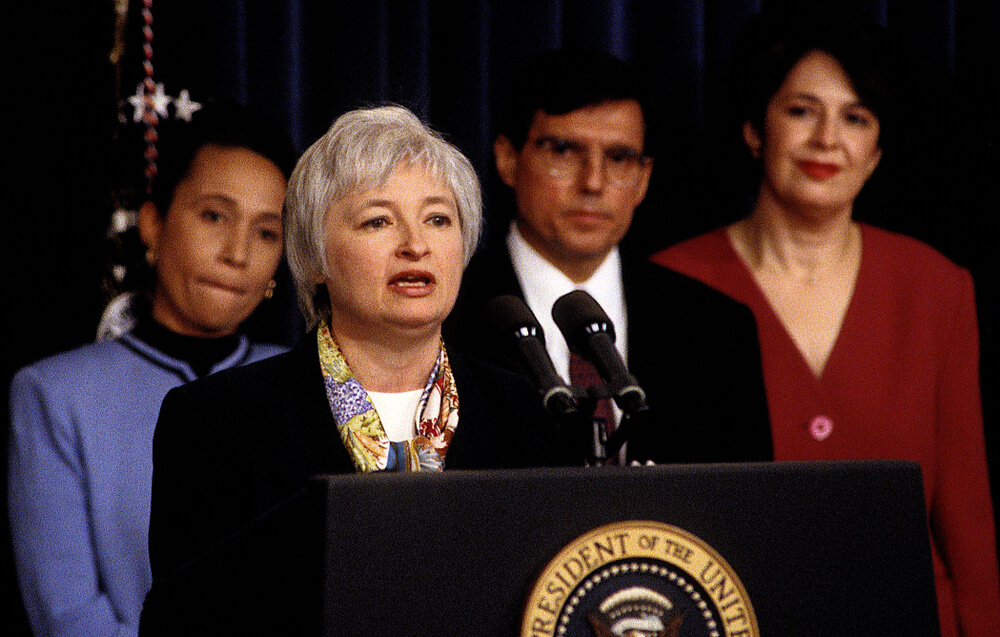Count CNBC’s Jim Cramer and former Federal Reserve Chair Janet Yellen among those who aren’t sweating this morning’s inversion of the 10-year/2-year Treasury yields.
The yield on the 10-year Treasury note fell below the 2-year yield early Wednesday morning, leading to a massive sell-off on Wall Street. The inversion of this particular yield curve has preceded every recession dating back 50 years, so traders are rightfully spooked.
By 2:30 p.m. Wednesday on the East Coast, the Dow was down 678 points, or 2.6%, the S&P 500 had fallen 73 points, or 2.5%, and the Nasdaq shed 219 points, or 2.7%, as investors flooded out of stocks and into bonds.
But Cramer, CNBC’s “Squawk Box” host, said strong mortgage applications and Warren Buffett’s faith in bank stocks means the inversion might not be as serious as previous ones.
“Longer term, am I going to bet against Buffett because the (algorithms) tell me to sell the stuff? I can’t. Particularly when the consumer’s taking advantage of the rates, and I look at the S&P top 50 companies, and it’s very hard to find ones that are really hurt by this,” Cramer said.
Buffett’s Berkshire Hathaway owns large positions in financial firms, including American Express, Bank of America, Goldman Sachs and JPMorgan & Chase.
Yellen, who was the Fed chair under President Barack Obama, also said the markets might be wrong this time in seeing the inversion as a signal of an imminent recession.
“Historically, it has been a pretty good signal of recession, and I think that’s when markets pay attention to it, but I would really urge that on this occasion it may be a less good signal,” Yellen said on Fox Business Network. “The reason for that is there are a number of factors other than market expectations about the future path of interest rates that are pushing down long-term yields.”
Yellen then said it’s not likely the U.S. is headed for an economic recession.
“I think the answer is most likely no (recession). I think the U.S. economy has enough strength to avoid that, but the odds have clearly risen and their higher than I’m frankly comfortable with,” she said.
Another former Fed chair, Alan Greenspan, also spoke on lower yields this week, saying “there is no barrier” to negative yields in the U.S.
“There is international arbitrage going on in the bond market that is helping drive long-term Treasury yields lower,” Greenspan said in a phone interview with Bloomberg. “There is no barrier for U.S. Treasury yields going below zero. Zero has no meaning, beside being a certain level.”
